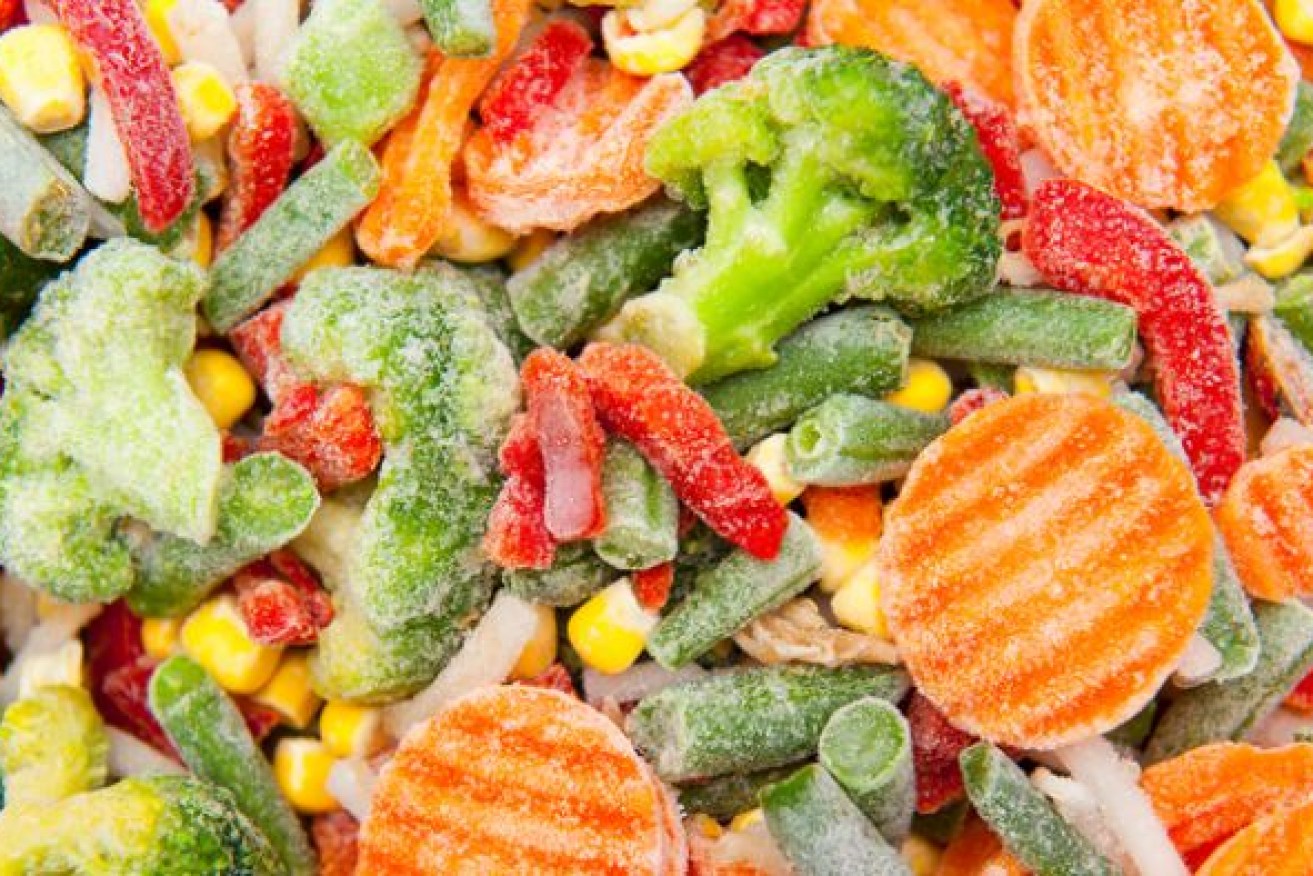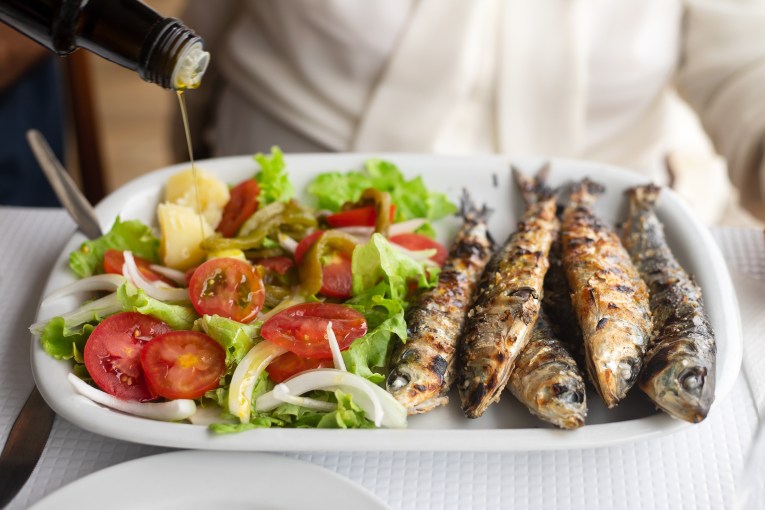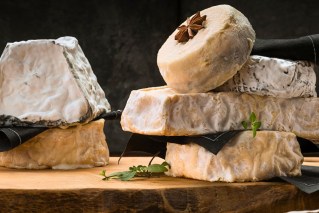Are fresh vegetables always healthier than frozen?

Don't be a snob about your frozen vegetables. Photo: Getty
If you’re trying to cut down on food waste, yet often have piles of limp and discoloured veggies in your fridge by the end of the week, it might be time to rethink your view of frozen veg.
There’s a common belief fresh is best and buying frozen veggies is a cop out.
But certainly on the nutrition front, frozen veg aren’t necessarily inferior, says Melanie McGrice, a spokesperson for the Dietitians Association of Australia.
“Picking veggies from your own veggie garden out the back has to be the optimal situation. [But] in Australia, veggies often have to travel a very long distance to get to us. This can take several days.
“We know that the longer it takes to get fresh food to us from the farm, the more the nutrients [in the food] slowly decrease.”
On the other hand, the nutrients in frozen produce are sealed into the veg during the freezing process.
“I’m not saying fresh fruit and veg is not a good choice. We are very privileged to have the variety of fruits and veggies that we grow in Australia. But frozen vegetables are certainly a valid option.”
And if they last for weeks or more in your freezer, they can also save on food waste.
Sometimes however, there’s a slight trade-off in the texture of frozen vegetables. But it’s worth trying different varieties, because this is more of a problem with some veggies than others.
Antioxidant advantage
One recent British study found antioxidant levels in frozen produce can actually be higher than in fresh fruit and vegetables.
This was “quite surprising”, because people have always thought antioxidant levels would be higher in fresh veggies, Ms McGrice said.
But two independent studies, which together included more than 40 tests on the most commonly bought fruit and vegetables showed in two thirds of cases, frozen foods had higher levels of antioxidant-type compounds, including vitamin C, polyphenols, anthocyanins, lutein and beta carotene on day three of storage.
It’s the water-soluble vitamins including vitamin C and some of the B vitamins that tend to be lost from our fresh produce the longer the veggies hang around, Ms McGrice said.
‘Freezing in’ nutrients

Fresh vegetables don’t necessarily have more vitamins and antioxidants than frozen ones. Photo: Getty
Vegetables are usually snap frozen very soon after they are picked. Special machinery is used to get the produce to -18 degrees Celcius in minutes.
The nutrients are ‘frozen in’ during this process, meaning you can quite easily have more vitamins in a frozen vegetable than in its ‘fresh’ counterpart.
But there is more to fruit and veggies than just vitamins.
One of the biggest reasons health experts want us to eat fruit and veggies is to get dietary fibre.
The good news is the fibre content doesn’t deteriorate easily, which means week-old fresh veggies still have value despite lowered vitamin levels.
And in case you were wondering, freezing doesn’t affect the fibre content of veg, Ms McGrice adds.
Preparation is key
How you cook your veggies is far more important than whether they are fresh or frozen.
“Boiling veggies in a large amount of water for a long time lets the vitamins leach out into the water,” Ms McGrice says.
Regardless of whether you are cooking fresh or frozen veggies, use as little water as you can and cook them for a short time. Steaming or microwaving veggies are much better options than boiling.
And if you are using frozen veg, Ms McGrice suggests checking the label of the packet.
“Usually they just contain the vegetable, but sometimes, particularly if there is a sauce, they may contain added salt and sugar,” she says.
(This can be a particular issue if you’re using canned vegetables, which are much more likely to include added salt.)
What to put in your trolley?
If you are doing a weekly shop, consider buying some fresh veggies and some frozen.
Here are some points to consider when you’re weighing up the pros and cons of fresh over frozen veg:
Fresh veg
- Can taste better than frozen.
- Usually have a better texture.
- If you’ve picked them straight from the garden, they will be bursting with nutrients.
- But produce can be more than a week old by the time we eat it.
Frozen veg
- Nutrients are ‘frozen in’ soon after picking.
- Convenience (can store for months)
- Allows us to have veggies and fruit that are out of season
- Adds variety to our diet.
- After defrosting, veggies can have a soggy texture, because ice crystals damage the vegetable cell walls.








